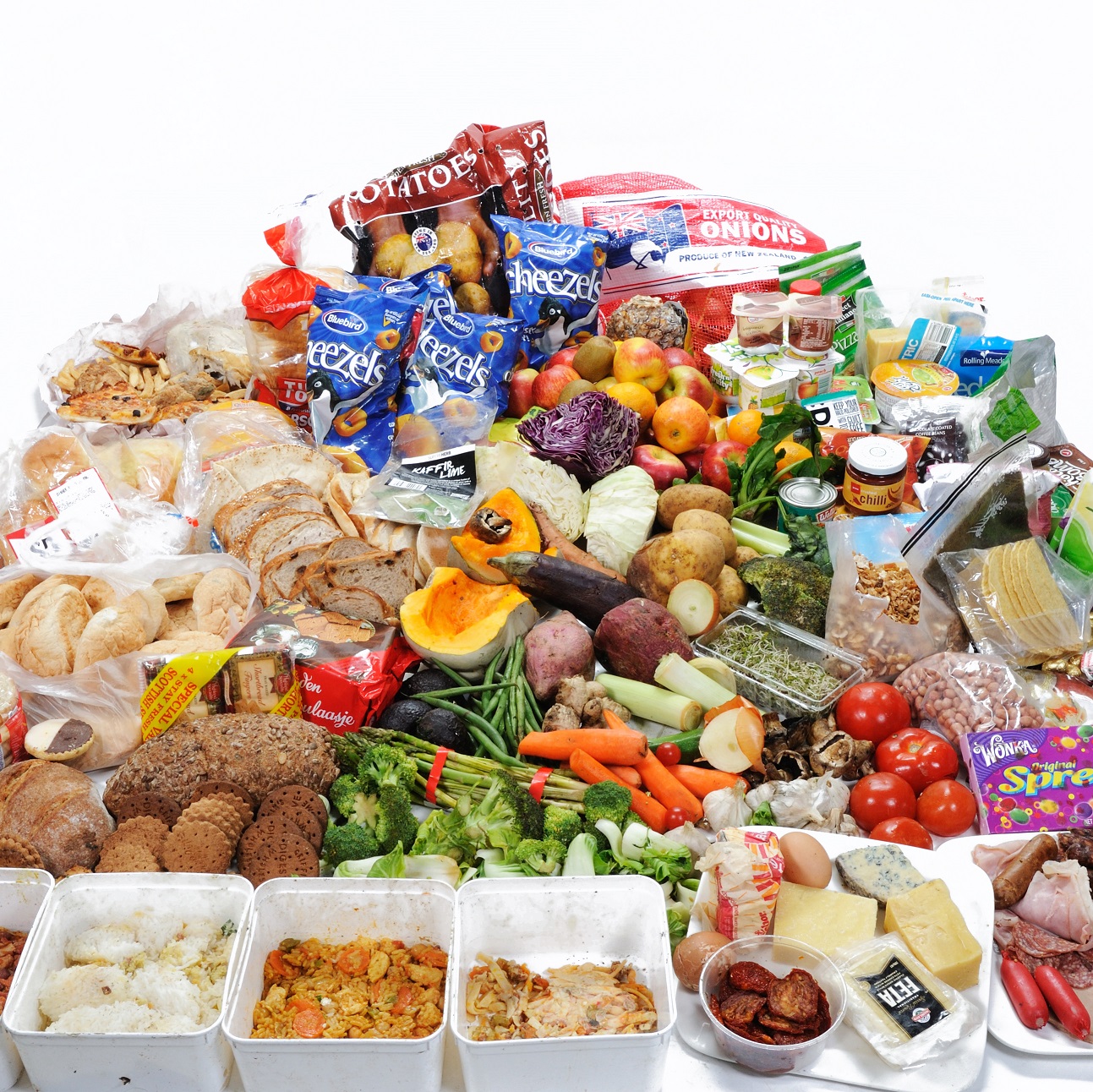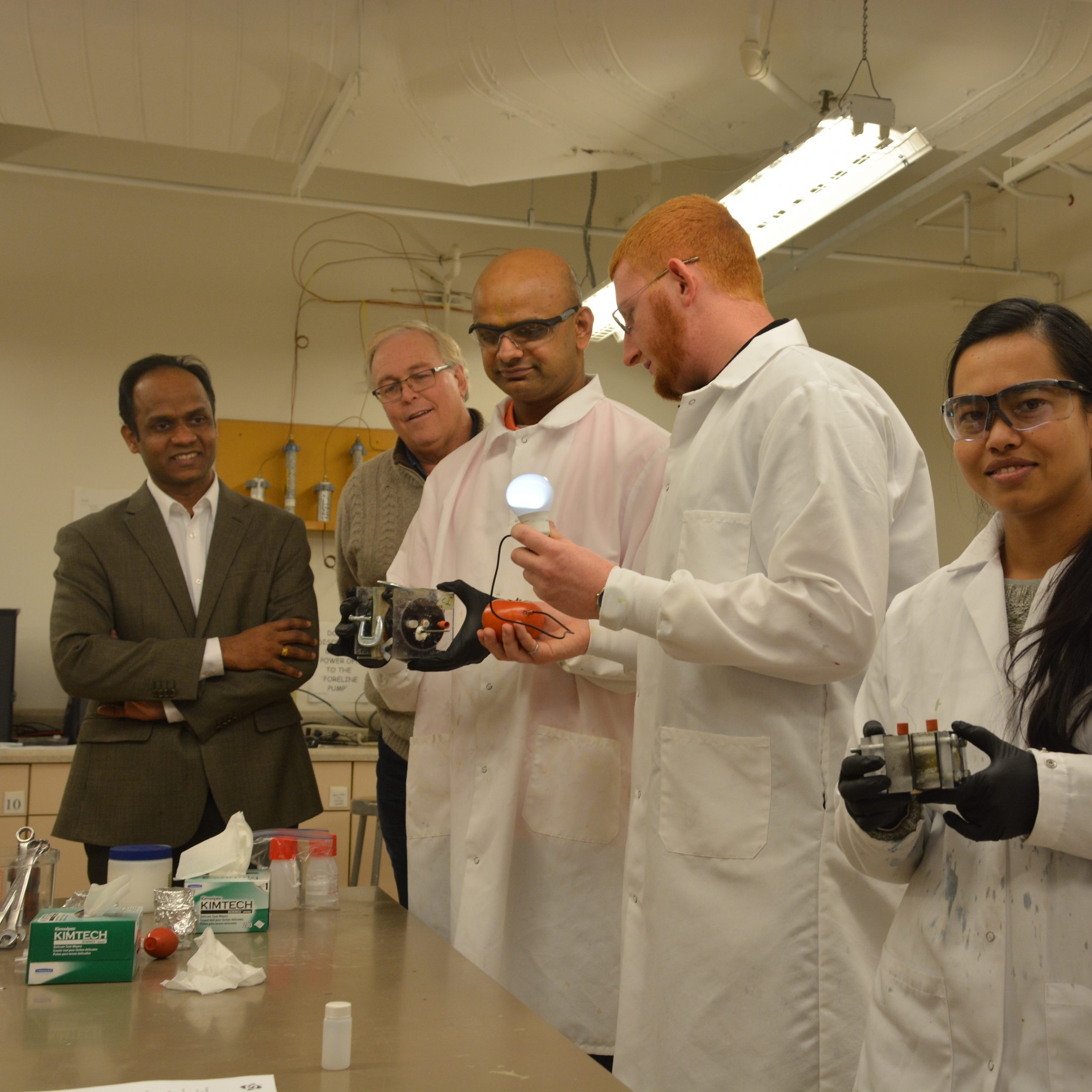A problem in Wastelandia – Exploring Alternatives of Food Waste Management (ESS)
Lesson Overview

Students are presented with a landfill expansion permit application and must ask critical questions and explore alternative food waste management possibilities in order to determine if the permit should be approved or rejected. They address the impact of food waste on human populations and the economy. Students are then asked to act as a regulatory committee hired by the city council, to suggest ways that the sanitation company can optimize waste rather than expanding the landfill.
About the Scientist

Ramana Gadhamshetty
Institution: SD School of Mines and TechnologyDr. Gadhamshetty (goes by Ramana or Dr. G) lived with his parents in his home town (Hyderabad, India) for the first twenty years of his life. After getting his first BS degree in Chemical Engineering Technology in 1998, he worked for Dupont in Singapore. While at work, he was nostalgic about education and research environment, constantly missing the pleasure of groping into the world of science. He immediately recognized his passion for education. He pursued his first MS degree in Environmental Engineering in National University of Singapore. His chemical engineering background helped him better appreciate new threats to the environment and potential solutions. He quit his job at Dupont in 2003 and moved to States to pursue PhD in Environmental Engineering from New Mexico State University. From then, he had an opportunity to interact with a wide range of talented students, researchers, and professors during his tenure at multiple places including Rensselaer Polytechnic Institute, Florida Gulf Coast University, and Air Force Research Laboratory. He is currently an Associate Professor in Environmental Engineering Minor Program Coordinator in Civil and Environmental Engineering department at South Dakota School of Mines and Technology, USA. His team is currently interrogating research questions at interface of surface engineering, 2D materials, electrochemistry, and system biology tools, with a goal of understanding how nano-scale (few nanometer thick) materials can influence life of both useful and harmful bacterial on relevant material surfaces. His work led resulted in several awards including the National Science Foundation CAREER award which carries a monetary value of $0.5 MM. He is currently a Board Certified Environmental Engineer and a licensed Professional Engineer of New York, a chair of Water Pollution Engineering Committee of the Environmental and Water Resource Institute at ASCE. A documentary of his ongoing research is briefly documented at Tedxtalk show of Rapid City in 2017. Dr. Gadhamshetty’s favorite research includes an innovative technology that can convert rotten tomatoes into electricity. Rotten tomatoes produced worldwide could create enough power to provide electricity for areas as big as the Disney complexes. Dr. Gadhamshetty’s team is currently leading over $8.0 million worth research projects funded by NSF, NASA EPSCoR, South Dakota Board of Regents, and Electric Power Research Institute. His researches on defective tomatoes was featured by w, American Chemical Society, BBC, CNN, History Now, and 350 other media outlets. His research currently uses unique environments of the Sanford Underground Research Laboratory and Yellowstone National Park to understand intricate interactions between biofilms and the surfaces they inhabit in deep, extreme and thermal environments respectively.
 National Science Foundation RII Track-1 Project:Expanding Research, Education and Innovation in South Dakota
National Science Foundation RII Track-1 Project:Expanding Research, Education and Innovation in South Dakota